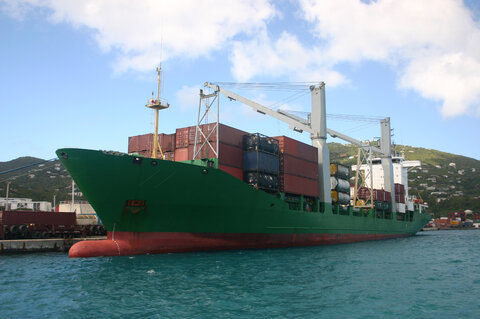Last week, the Philly Shipyard announced the ceremonial start of construction on three Aloha class containerships. While typically a celebratory occasion, the cutting of steel for these ships should be more accurately viewed as marking a grim milestone for American shipbuilding. At $333 million each, the vessels symbolize a stunning lack of competitiveness and the failure of US maritime protectionism.
The ships’ price tag is almost difficult to fathom. For perspective, the same shipyard was contracted to build two Aloha class containerships—i.e., almost the exact same vessel (the new ships feature a more advanced LNG propulsion system)—in 2013 for $209 million each. That’s an increase of well over $100 million in nine years (the new vessels were ordered in 2022).
Further, consider that two LNG-powered containerships were ordered from a South Korean shipyard in 2022 for over $200 million less per ship than the new Aloha class vessels despite having more than double their cargo capacity.
Why the vast price difference? As one Danish maritime publication put it, “It’s not because the ships are built from gold plates instead of steel plates, but the US shipbuilding industry is way, way too expensive because it’s not competitive.”
This lack of competitiveness is a natural outcome of not having to compete. Instead of carving out a specialized niche within the global market, US shipyards almost exclusively operate within a captive domestic market created by the 1920 Jones Act (large Navy and Coast Guard contracts restricted to US shipyards also encourage this domestic orientation). Among its provisions, the law requires that vessels transporting goods within the United States be constructed in domestic shipyards.
In theory, such protectionism ensures the existence of capable shipyards to meet the country’s national security needs. Indeed, Jones Act advocates insist the law helps provide a “modern” and “robust” shipbuilding industrial base.
But these claims are at odds with the facts.
Far from robust, US shipyards’ collective output ranked just 15th globally from 2019–2023.
These numbers make it more difficult for US shipyards to justify the investments needed to stay on the industry’s cutting edge, as such outlays are spread across relatively few vessels. This contributes to a pronounced technological gap with foreign shipyards. Indeed, one member of Congress recently stated that some US shipyards appear unchanged since the 1930s.
The US shipbuilding industry is caught in a vicious cycle. As costs escalate, demand decreases, putting further upward pressure on costs as the economies of scale needed to remain competitive further erode. While US-built ships cost roughly double that of ships constructed abroad as recently as the 1970s, today they can be four or more times the world price.
Their price goes higher still if one accounts for the numerous subsidies provided to the shipbuilding industry. Philly Shipyard, for example, received $438 million in 1997 and another $42 million in 2011 to pay for various upgrades. It also benefits from a $1 per year lease from the quasi-public Philadelphia Shipyard Development Corp, and numerous federal programs meant to promote domestic shipbuilding.
And that’s on top of the Jones Act, itself a significant subsidy to US shipyards.
The icing on this protectionist cake is that the few large commercial ships delivered by domestic shipyards are only superficially “US-built.” While assembled in the United States, these ships heavily rely on imported parts and components. The previous two Aloha class ships (designed by a South Korean firm) feature foreign-built engines, propellers, and other key machinery. Even much of the steel was imported.
According to one Philly Shipyard executive, at least half of the parts and components in a US-built ship are foreign-sourced.
While there’s nothing objectionable about imports, their use shatters any notion that costly Jones Act protectionism frees the United States from relying on foreigners for its shipbuilding needs.
If meant to ensure a vibrant shipbuilding industry, the Jones Act’s prohibition on foreign-built vessels has clearly come up short. But this failed policy also inflicts myriad harms. High domestic shipping costs—largely due to the inflated cost of buying the actual ship—serve as a de facto tax on intra-US commerce that hurts businesses and consumers. There’s more pollution, congestion, and wear and tear on highways as cargo is diverted to less costly transport modes such as trucking and rail. Foreign trading partners maintain barriers to US exports in retaliation for Jones Act protectionism.
Not least of all, forcing Americans to pay inflated prices for new ships is also a transparently self-defeating method of encouraging a healthy and capable US merchant marine—ostensibly one of the Jones Act’s chief tasks.
When Philly Shipyard’s new containerships are finally delivered, they will no doubt be greeted with much pomp and circumstance. One of them might even be named after a politician with a well-established record of advocating on behalf of the shipping industry. For most Americans, however, these ships represent dysfunctional protectionism for which there is precious little to celebrate.















